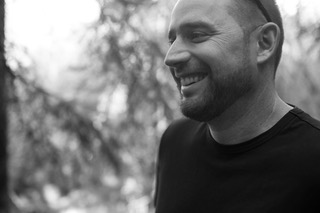ADHD LESSONS FROM COVID-19
Adult ADHD
(Attention Deficit Hyperactivity Disorder)
Adult ADHD/ADD
Many adults struggle with symptoms such as sustained attention, distractibility, focus, forgetfulness, organization, restlessness or impulsivity since childhood, but may not have considered the possibility of ADHD.
What are the symptoms or signs?
Most problems occur with time management, planning, organizing and the ability to complete tasks and goals. Always being late, missing deadlines, procrastination, little concept of time, etc.
It appears people with ADHD/ADD underestimate time. They tend to postpone things and wait until the last minute to deal with it. They begin to plan for an inevitable event, but feel they cannot quite complete it until it is the eleventh hour. Everything in life becomes a crisis as they seem to ‘live in the moment’. Others would say the person with ADHD/ADD could have avoided the crisis, but somehow chose not to. They are perceived as having a lazy, care-free, care-less attitude that they could change at any time if they want to.
The truth is that the executive functioning area of the brain which is responsible for decision making, planning and time management, fails to work effectively. The person has an inability to accomplish all of the things they intended to do. ADHD/ADD can be seen as a performance disorder. It is not a knowledge disorder. You know what to do, but not always how to get it done.
Adult ADHD/ADD coping skills and strategies
The easiest thing to do is to whip up a list of time management strategies. Unfortunately, the reality is most of it will not be used. Why not? Well, the piece of paper with the list on will probably be lost on the way home or to work, or blow under the front seat of the car, or you will forget it is there. If you do remember, you might tape it on to your refrigerator door but won’t look at it. If you do look at it, you will be telling yourself that you should really do something about it.
For any strategy to work, it must relate to something real and important in the person’s life. The key to getting something done, lies between the emotions and the consequences. ADHD/ADD is an internal, neurogenetic executive failure. Nothing gets done because the person cannot self- motivate and plan like others do. A very useful strategy is to change your immediate environment i.e. cut out distractions and put a big visible timer where you can’t miss it. Tackle the smallest task first. Create positive or negative little consequences as motivators so as to be more productive and effective. Note how it makes you feel as you go along.
Myth VS. Fact
Myth: ADHD is over-diagnosed and over- treated.
Fact: Despite the serious consequences, studies show ADHD remains under- diagnosed and under-treated. Less than half of those with ADHD receive appropriate treatment.
Sources:
Barkley, Russell. A., ADHD Handbook for Diagnosis and Treatment, 2015. New York: Guilford Press.
The Myths and Facts, Janssen-Ortho Inc. Brochure, 2015. Toronto: Janssen-Ortho
Roché Herbst
M.A.R. Psych
My practice location is from my home office in Bragg Creek Mondays and Wednesdays 10am-5pm; Calgary office Tuesdays and Thursdays 9am-4pm. Call or text me on (403) 510-9984 or email: info@wehcs.com























